Last week, I was enjoying a rare afternoon off at home when the phone rang. It was a cold call.
“Hello, am I speaking to Mrs. T-? This is David from Dodgy Computer Services Inc. How are you today?”
Like most people, I’m not a fan of sales calls. Especially when they’re from individuals who might be trying to hack into my PC. But what annoyed me most wasn’t the call itself. It was the way the salesman had addressed me.
I picked up the phone and said, “That’s not me!,” as I often do when callers have the audacity to assume I share my husband’s last name. “Are you telling me my husband is married—to SOMEONE ELSE? Called Mrs. T-? Who lives HERE? Where is she? Hiding in the wardrobe?”
Usually by this point, the object of my tirade has decided I’m a total loon and hangs up on me. But at least I’ve made my point—and gotten rid of the sales call in one fell swoop. Bingo.
I am not Mrs T-. In fact, I’m not Mrs. anything. I’ve been married for seven years, but I’m one of these strange, oh-so-modern gals who decided not to change their name.
A YouGov poll conducted last year revealed that almost two-thirds of Americans believe husbands and wives should have the same last name after marriage, while recent statistics showed that just 8 percent of American women currently keep their last names after tying the knot. That’s down from a record high of 23 percent in the 1990s, when Girl Power was at its peak and the third wave feminist movement was riding a Riot Grrrl high. Since then, the number of women keeping their own names has been steadily declining, much to feminists’ dismay, with even superstars like Beyoncé (The Mrs. Carter tour, anyone?) taking their husbands’ surnames.
Although I live in Scotland, here I’m also in the minority for keeping my last name, and I often wonder why more women aren’t keen on preserving their identities in a similar way. Some women recently surveyed by The Knot, the wedding magazine, said they found the idea of taking their husband’s name romantic, and it somehow made them feel like they were truly uniting to become one family. Other women, who had a less-traditional take on things, said they just didn’t feel right giving up a name they’ve identified with, both personally and professionally, for years. Like me, they said that keeping their maiden name was in no way a sign that they didn’t take their marriage vows seriously, or that they didn’t love their husbands enough. It was simply something they felt they needed to do.
Either way, there’s nothing that rubs me the wrong way more than a person who assumes that a married woman has changed her name. And goes by the prefix of Mrs. And it’s not a mistake that’s made by strangers only. Friends, family and colleagues are often guilty of ignoring my decision to keep my maiden name.
Come December, this is especially true. Suddenly, when the holidays roll around, people who’ve happily used my maiden name of Bradley throughout the year—whether at work, or for daily interactions with me on Facebook or Twitter—suddenly change my name when they’re addressing holiday cards. Many claim it’s easier to address an envelope to a couple with one surname, and I get that. But these are the same folks who had no such issue in the years we (whisper it) lived together before we were married.
Most of my friends have gotten the message by now, after seven years of hearing me complain about this. (Besides, when a card addressed “Mr. and Mrs.” does sneak its way through out door, my husband often manages to intercept it before I can see it.) But there are some infuriating folks who refuse, year round, year after year, to accept that my decision retain my maiden name is for real.
“Yes, but your name really is Mrs T-” they insist. “I know you don’t use it, but it’s still your name.”
No, no, no, it isn’t.
Unlike in the U.S., here in Britain we do not have a “legal name” that’s registered with the authorities. A marriage certificate gives you the right to adopt your husband’s name, should you choose to do so, but no one has to know either way. After the wedding, it’s a long and painstaking process to change your name, individually, with everyone from the passport authorities to your mobile phone provider. Even after you’ve gone through all that, it’s inevitable that years later, you’ll realized that you missed one, and the financial services provider behind some long-forgotten store card will pop up on your 10th wedding anniversary like a Ghost of Monikers Past.
Of course, I did consider holding with tradition and becoming a Mrs. I’d mentioned to my mum a few months before my wedding that I was thinking of keeping my maiden name, and she was shocked. She told me my husband would be distraught—and possibly feel castrated—at the idea that I would not want to adopt his surname and become part of his family.
Like a good girl, I listened to my mother. For some reason, I didn’t consult my husband. I opted to keep my own name for professional purposes only and a few days after the wedding, started the slow process of changing it at home. I got as far as altering my bank cards and making a few tentative reservations in my “new name” when I found myself at the hairdresser, waiting for my appointment. A new receptionist was calling a customer: “Jane T-? Jane T-?” It took a couple of minutes before I realized it was me. But it wasn’t. The name I had lived with for my entire life was me. This impostor Mrs. T- was most definitely not.
I had built up a career as me. All my friends had met me as me. Changing my name would be like introducing a whole new person into the world.
I went home and confessed all to my husband. He just stared at me and said, “Why on earth would you think I would mind? I wouldn’t change my name, so why should I expect you to change yours?” He was surprised when I had said I was going to, he told me.
Relieved, I switched it all back. The bank was confused. “So, you’re still married? You still have a joint account with your husband, but you want to change your name back?” he asked. Yes. Silence. “We don’t have a form for that.”
Of course, it is in the English-speaking world where these gender-based traditions are prevalent. In other cultures, in can be very different.
In Iceland, the father’s first name, instead of his surname, is customarily passed down. So, if your father is called Sighvat Bjornsson, your name might be Bjork Sighvatsdottir (daughter of Sighvat). Your brother could be Haruldur Sighvatsson (son of Sighvat).
Since 1983, Greece has required women to keep their birth names for life. And Latinos, both in the U.S. and in native countries such as Spain and Mexico, usually take their husband’s name as a second surname and both the wife’s maiden name and the husband’s name is passed on to the child. And here in Scotland, it’s quite common for a female child to be given her mother’s maiden name as an extra middle name.
I’ve been told that travel to some areas of the world, especially Middle Eastern countries, can be tricky for a woman who’s kept her middle name, as authorities may not believe you’re married. However, it’s an obstacle that can easily be overcome by carrying a copy of your marriage certificate.
People ask me if I mind not having the same surname as my daughter, and I don’t. But I’ve wondered, though, if my daughter will have a problem with it years down the road, like the children of one of my friends did. This friend recently got married after nearly 15 years with her partner, mainly because her kids worried that because she had a name different than theirs and Daddy’s, she wasn’t a true part of the family.
I’d like to think my daughter won’t ever feel that way about me. I’d like to think she regards me as a very integral part of our family, and a happier, more self-assured mum because I’ve kept the name that I identify with, and one that’s served me well my entire life. And if she considers keeping her own birth name, if and when she decides to marry, both her father and I will support her 100 percent.
—Jane Bradley is a consumer affairs correspondent and columnist for The Scotsman and Scotland on Sunday newspapers in Edinburgh. She is currently writing a travel memoir about her time living in Romania.

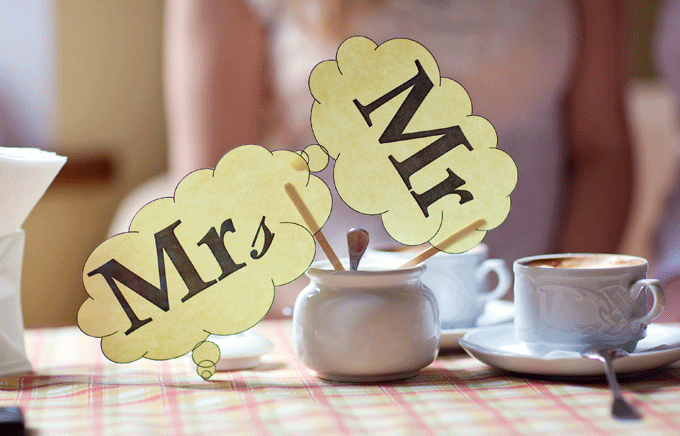
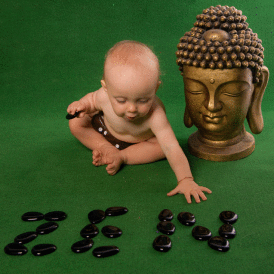




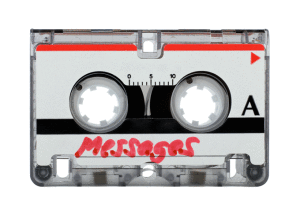



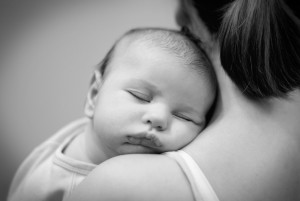
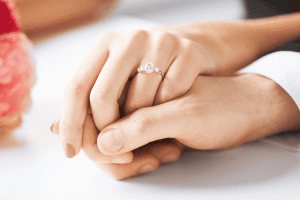














2014/08/17 at 1:34 am
I am a firm believer that a woman should have the right to choose. At the same time I happily took my husband’s last name. I can say it was one of the top experiences of my life. I might be old fashioned, but there is pride and joy when your last name changes to that of the person you will be with for life.
2015/01/03 at 12:15 pm
When I asked my niece who was about to get married if she was going to change her name she looked shocked and said that she ‘wasn’t a good or a chattel to be bought and sold’. Her remark seemed to me to be insensitive and momentarily upsetting, particularly as I support any woman who chooses to keep her ‘maiden’ name, as my daughter in law has also done. I took my husband’s surname when we married in 1969 because it was customary to do so then. Having done so, did not make me feel less of a person or lacking in self-esteem in any way. We chose to live together before marrying, agreed jointly to get married, were not engaged, have been a team ever since sharing responsibilities equally. A little more humility and intelligence in the face of changing customs and views would not come amiss.